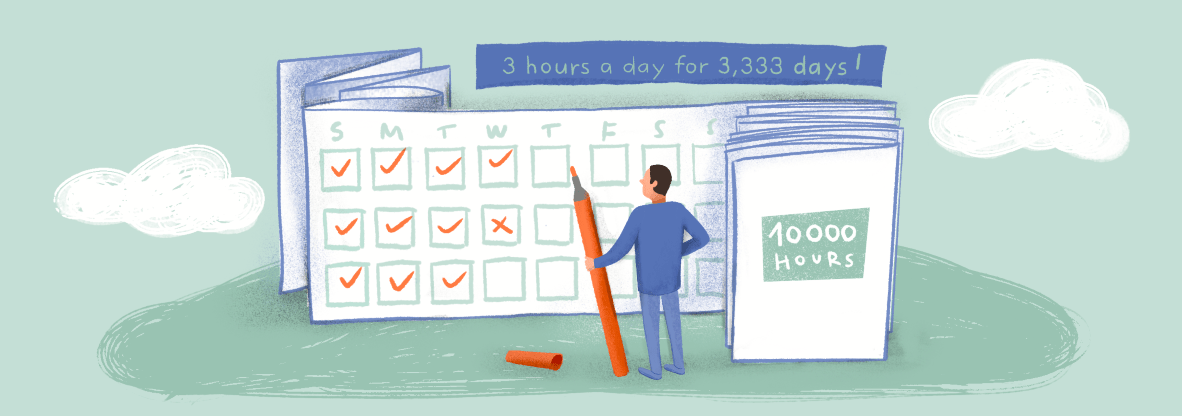How To Perform A Skills Evaluation

Skills evaluation is absolutely crucial in the workplace. Whether you’re accessing your own skills or someone else’s, it’s very important to be able to take a step back and make some objective, evidence based judgements about what a person can and cannot do.
So let’s explore how to evaluate skills, what the skills assessment process looks like, and the right way to give and receive constructive criticism.
The Skills Assessment Process
Many companies like to use skills evaluation tests, of which there are many types. We won’t get into the specifics here as, while they vary a lot, the basic principle is the same – a series of questions designed to assess soft skills.
These questions tend to focus on soft skills evaluation because hard skills are generally easier to self-report. Furthermore, they also tend to be easier to confirm or deny through practice. It’s pretty easy to say whether or not a piece of code worked, it’s much harder to judge whether your time was best spent writing said piece of code.
An employee skills assessment helps to judge overall competency outside of technical knowhow.
Evaluating Soft Skills
A lot of people think soft skills aren’t worth that much, or else that they’re less prestigious than hard skills. For those with more career experience – and especially those who’ve worked in hiring – the truth is a lot more complicated.
While hard skills are a lot more likely to make their way into the ‘needs’ category of a listing, that doesn’t change the fact that it’s soft skills that usually make the difference between a decent employee and an exceptional one.
Self Evaluation
Ironically, one of the best soft skills you can have is good skills evaluation. Some of the best people you can ever work with are those who are able to be honest about their strengths and their weaknesses.
There’s no place for false modesty in self evaluation. Many people think that they have to admit to some flaws or it’ll make them look arrogant. While this may be socially advisable, it doesn’t provide a practical ground to work from.
Self evaluation is about setting your ego aside and judging as honestly as you can – even if that means admitting you can’t see any major areas for improvement. If you don’t know which skills you could be improving, then pretending otherwise can only serve to hold you back. Instead, try asking the people around you where they think you improve and see if their answers hold any merit.
On the same note, just because you feel you’re bad at something, that doesn’t automatically mean you are. Try to ground your evaluations in practical, real world scenarios.
For example, many people think they’re bad at public speaking. After all, it certainly makes them feel nervous and it’s always easy to find some moment to cringe about in retrospect. That said, how they feel about it says very little about how good they are.
Did the audience laugh at the jokes and clap at the end? Did the shareholders nod in approval? If the goal was ultimately successful then you’ve done a good job.
It’s easy to get emotionally attached to your skills evaluation. In a very real way, you’re often judging your own worth. How can a person not be attached to it?
When all’s said and done however, the best approach to self assessment isn’t to blame yourself for shortcomings or worry that you’re being arrogant. It’s to step outside your feelings and ask yourself honestly if the results of your work meet the standards you’d expect of others and, if so, could they be even better?
Trust But Verify
When it comes to other people’s skills, it really is good to ask them what they believe their strengths are before judging for yourself. Not everybody is good at self assessment but their answers will usually be informative nonetheless.
Until you’ve seen them in action, it’s also best not to make any judgements about their answers. Trust that, at very least, they are telling you what they believe to be true. You may later discover that they have a distorted perspective but even if a person sounds too cautious or too confident about their abilities, it’s pretty rare for people to outright lie about this stuff.
Constructive Criticism and Roads to Improvement
Of course, the hardest part of any skills evaluation is having to tell someone that their work just isn’t good enough – even if that someone is yourself. There are whole books out there on delivering and receiving constructive criticism but at its core, it’s all about encouragement and direction.
Good feedback remembers the human underneath the actions. It pinpoints specific problems and avoids getting too personal.
Many people take the attitude that if you want to get ahead in life, you have to develop a thick skin. While that can certainly help, the truth is that there’s no use in making a criticism more harsh than it needs to be.
It’s also important to remember that too much critique can be overwhelming. Even if a person has five problems, it’s better to work on them one at a time than all at once. If a person feels like they can’t move without making a mistake, the challenge ahead of them starts to feel impossible.
And all of this applies just as much to yourself as it does to others. Improvement happens over time and there’s a difference between taking responsibility and beating yourself up. So the next time you fall short of your personal skills evaluation, remember that identifying a weakness is the first step towards building a strength.


